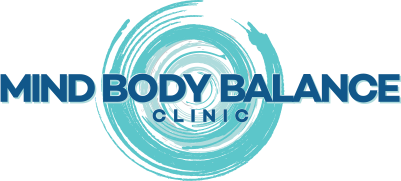
Blood Chemistry: What story is your blood work telling?
The human body is a fascinating work of art. The more I study all the intricacies and interrelated systems, the more amazing it becomes. With that said, there are a number of drivers and root causes that can make someone feel ill and present to a doctors clinic.
A comprehensive evaluation should be part of any patient encounter. This includes a subjective discussion with the patient about medical history, family history, history of the presenting problem, medication use, supplement & herb use, diet, water intake, sleep quality, movement & exercise quantity, stress levels & how one copes with stress, social/support network and connection with higher power.
The objective portion of a comprehensive evaluation includes a physical examination such as blood pressure, pulse, reflexes, range of motion, and orthopedic test (when warranted). Imaging studies may be part of this initial workup such as x-ray, ultrasound or MRI. Blood work is another tool physicians use during the objective data gathering and will be the main focus of this discussion.
Blood work is a valuable way to help uncover dysfunction leading to a persons signs and symptoms. Blood work tells a story about what is occurring in different areas of the body in that moment. Most people, if not all, have had some sort of blood chemistry performed, whether for wellness screens or to hunt down pathologic causes. The unfortunate side of blood chemistry though, is much of the valuable data is often ignored or the reading physician doesn’t even know it’s right under their nose. Many lab markers have vary wide reference ranges and as long as they fall into this range, are considered normal. This couldn’t be farther from the truth! This is why I have seen so many patients that feel awful even though they have “normal blood work”.
Blood chemistry panels reveal patterns and help the provider identify many nutritional insufficiencies, even when a marker is in the normal lab ranges. Most physicians are not trained properly in how to appropriately evaluate these findings due to the lack of nutritional education in medical school (This is heavily due to the amount of money pharmaceutical companies donate to medical schools). Some of the common panels ordered such as a CBC (complete blood count) can indicate many nutritional deficiencies or insufficiencies such as B12, folate, iron, copper and vitamin C. A CMP (comprehensive metabolic panel), which looks at electrolytes, blood sugar, liver and kidney function markers, can reveal a nutritional need for vitamins and minerals such as B6, zinc, and chromium. A well trained functional medicine provider can also make connections to other system imbalance from blood chemistry panels such as adrenal over or under activity, liver or gallbladder dysfunction, and even need for stomach acid support.
One of the most misinterpreted blood chemistry panels has to be the thyroid panel. The vast majority of patients come in with only a TSH marker. TSH is a brain hormone that communicates with the thyroid gland to make primarily T4 and some T3 (T3 being the active hormone). The optimal range is much smaller than what is listed for the laboratory reference range, and as a result, many are said to have a normal thyroid when they actually need therapy. When a patient has symptoms of thyroid imbalance but “normal” lab results, this is referred to as euthyroid. When observing the thyroid many fail to get a complete picture as T4, T3, and reverse T3 are not ordered. These markers allow the provider to evaluate how the body is converting T4 to T3 and how T3 is attaching to the cell receptors. This is how a good functional medicine provider uncovers peripheral resistance (similar to insulin resistance). Lastly, thyroid antibodies are also rarely ordered even though the number one cause for hypothyroid is Hashimoto’s thyroids (an autoimmune condition where antibodies are present). Nutritional speaking, the above mentioned markers can help identify many micronutrient insufficiencies such as tyrosine, iodine, zinc, selenium, vitamin A, omega 3 fatty acids, iron, and B vitamins. These can all be improved with diet and nutritional supplementation.
I could go on and on about all the specific findings and indicators, a well trained physician in the nutritional healing arts can uncover. I can’t stress the importance of blood chemistry enough and why it is an invaluable tool I use with all patients in my practice. It is also why I started offering blood chemistry consultations. It is my goal to educate all my patients and make them a well-informed patient. Almost every single patient I have seen tells me no one has ever reviewed the blood chemistry results with them. The are simply upload onto a MyChart without explanation or physician assistant/nurse calls and says everything was normal. Does this sounds familiar? If you suspect your blood chemistry is telling more then you have been told, the solution is to find a provider that specializes in functional and nutritional medicine to help identify these imbalances.
To learn more about the nutritional blood chemistry consult at Mind Body Balance Clinic visit https://mindbodybalanceclinic.com/nutritional-blood-chemistry-analysis/
GENERAL ENQUIRIES
OFFICE HOURS
| Monday | Closed |
| Tuesday | 9am – 6pm |
| Wednesday | Closed |
| Thursday | 9am – 6pm |
| Friday | 9am – 1pm |
| Saturday | 9am – 1pm |
Social Media Outlets
Request Appointment
Please fill out the form below.


